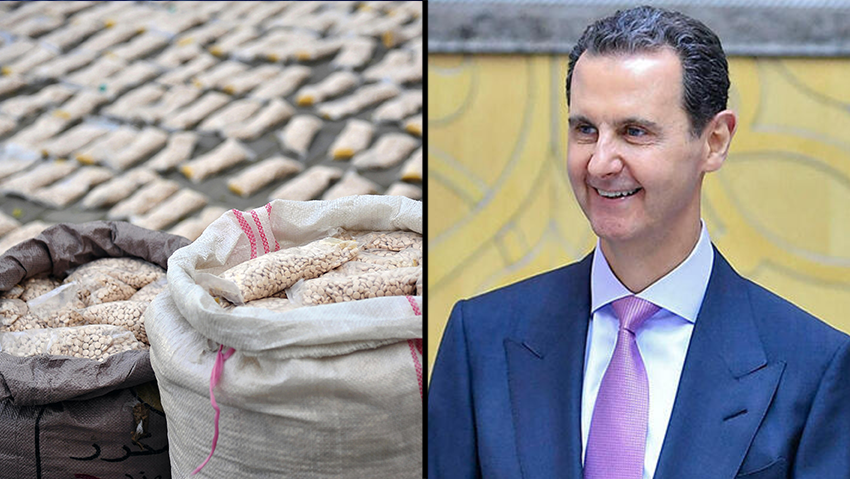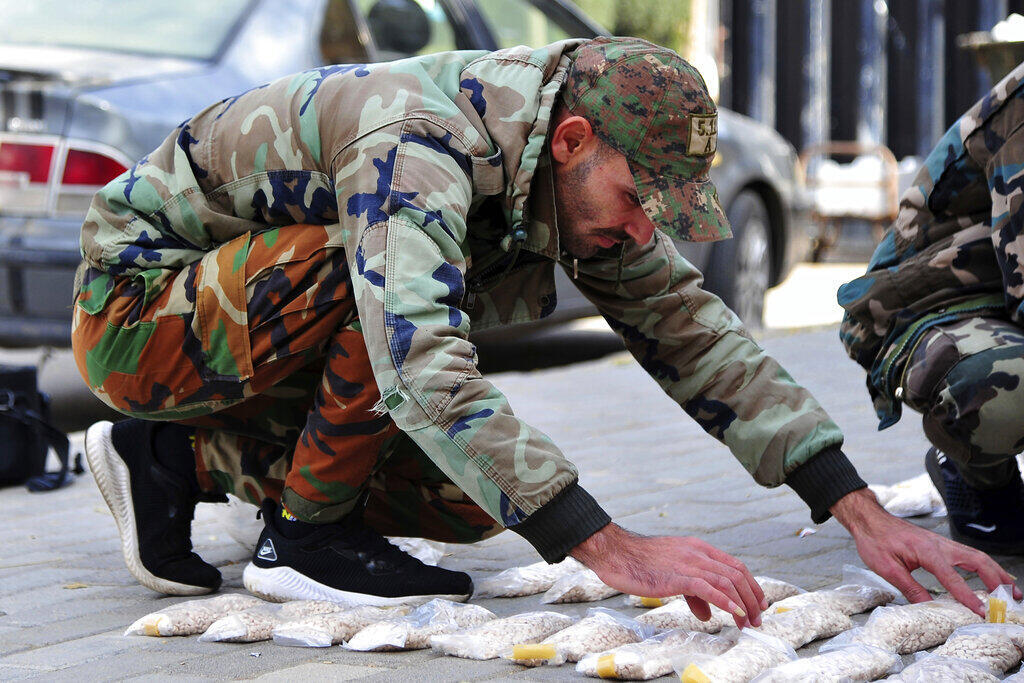Getting your Trinity Audio player ready...
With recent developments on the Syrian front, questions arise about the fate of the drug empire in the country established by President Bashar Assad's regime.
Captagon, the stimulant drug nicknamed "The Islamic State’s chemical courage" and "poor man's cocaine," was found among the belongings and in the vehicles of Hamas terrorists during the October 7 massacre. Generating at least $5 billion annually, Captagon has been Syria's number one export.
The drug financed the Syrian army and Hezbollah, while billions also flowed into the private coffers of the Assad family, Syrian army generals and Hezbollah officials. This industry financially sustained the regime as Syria's economy collapsed during the civil war, with operations rivaling the scale of major drug cartels in Mexico and South America.
The man responsible for managing Captagon production in Syria was none other than Maher Assad, the former president’s brother. Until recently, Maher commanded the Syrian army's Fourth Division, often referred to as the "Captagon Division."
However, with rebels now taking control of various Syrian provinces, Maher's focus has likely shifted to his own survival. Reports on his whereabouts remain unconfirmed, with one claiming he was last seen in Qardaha on Syria's coast, possibly planning to leave through Khmeimim Airport.
A video shared on a rebel-affiliated channel also revealed an underground bunker beneath his home. The fate of Bashar Assad himself was uncertain for hours until a Kremlin source confirmed that he and his family had fled to Russia.
Captagon production, supported by Iran and in collaboration with Hezbollah, formed the backbone of Assad's regime. Neighboring countries have struggled for years to thwart the relentless smuggling of drugs from Syria.
The border between Jordan and Syria, spanning over 375 kilometers (235 miles), presents a particularly challenging area to monitor. Recent developments in Syria suggest that production lines may have halted, at least temporarily, as Maher faces more pressing concerns.
Tensions over Captagon have extended beyond Syria's borders. Over the past year, Jordanian fighter jets have reportedly targeted facilities linked to Captagon smuggling near the Jordan-Syria border, particularly in the southwestern Sweida province.
These strikes, aimed at warehouses and hubs connected to the drug trade, occasionally resulted in civilian casualties. In one January strike, ten people, including two young girls, were killed in the village of Urman in the Sweida province.
Protests erupted, with residents blaming Assad's regime for turning their homes into targets for Jordanian strikes. One demonstrator held a sign accusing Assad: "The Captagon dealer is in his palace, not in Urman or Malah [two areas targeted by airstrikes]."
Bashar Assad's underground bunker
Hezbollah has consistently denied involvement in drug production, yet reports indicate Iran established manufacturing facilities for the group in Lebanon's Beqaa Valley, near the Syrian border. Though involved, Hezbollah has reportedly avoided placing its members in key smuggling roles.
Al Jazeera reported earlier this year that Syria produces 80% of the world's Captagon supply. Jordan intercepted 65 million Captagon pills in 2022 alone, all originating from Syria.
Get the Ynetnews app on your smartphone: Google Play: https://bit.ly/4eJ37pE | Apple App Store: https://bit.ly/3ZL7iNv
Smuggling across the Jordanian border involves both foot traffic and drones, which are also used to transport weapons. The Jordanian army regularly highlights major smuggling busts through official media channels.
Amid the ongoing upheaval alongside broader questions about Syria's future and the Assad family's fate, the issue of drug production still looms. Neighboring countries may hope for relief from this menace, but Iran remains active in the region, and Hezbollah, though weakened in recent months, remains a significant actor in the regional drug empire.








